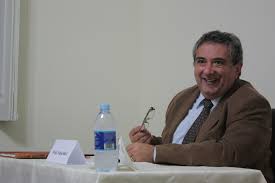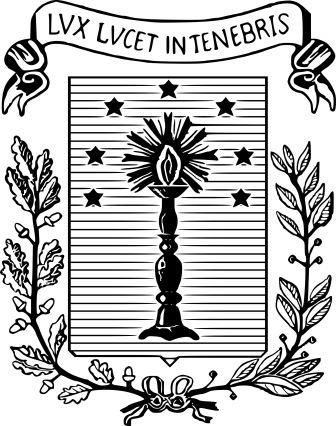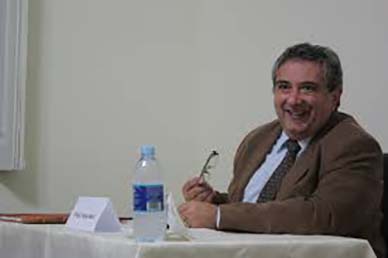The current situation in Italy and the Waldensian Church’s response
 Following the formation of the new populist government in Italy, Dr. Paolo Naso has written the following reflection and report on what this new government means for the Waldensians’ ministry with migrants. Dr. Naso is the coordinator of Mediterranean Hope and a Waldensian lay leader, and is a member of the Common Global Ministries Board of Directors, from the Europe region.
Following the formation of the new populist government in Italy, Dr. Paolo Naso has written the following reflection and report on what this new government means for the Waldensians’ ministry with migrants. Dr. Naso is the coordinator of Mediterranean Hope and a Waldensian lay leader, and is a member of the Common Global Ministries Board of Directors, from the Europe region.
What is changing in Italy? How is the Waldensian Church responding to the new political situation? These are the questions that many international friends and partners of Mediterranean Hope, the migrants and refugees program of the Federation of Protestant Churches in Italy, are asking.
From our point of view, the change is very clear: From the ambiguous but moderate policy to the migration issue that until just a few days ago was implemented by the center-left governments, we have moved to a much harsher and more muscular approach based on the premise that Italy must do everything possible–including violating international agreements and risking political isolation–to keep new migrants from entering Italy.
The previous governments (Renzi first, then Gentiloni) did much that the Waldensian Church, the Federation, and many Catholic organizations disagreed with, including signing agreements with Libyan political factions to stop migrants from leaving that North Africa country for Italy and establishing massive and inhumane detention centers – immigration jails – in Niger and other countries on the migrants’ way to the Mediterranean. The Renzi and Gentiloni governments also adopted a “code” for NGO’s conducting search and rescue operations in the Mediterranean. These codes imposed strict rules but recognized the NGO’s positive role in saving human lives. In addition, the Renzi and Gentiloni governments implemented a massive reception system that allowed approximately 400,000 refugees or asylum seekers to get temporary shelter in Italy. The Waldensian Church, the Federation of Protestant Churches, and the Waldensian Diaconia each contributed actively to this program, offering houses and developing ministries for welcoming and integrating the new migrants. Last, but not least, these previous governments committed the Italian state to work with “Humanitarian Corridors,” a new and creative ministry which made it possible for vulnerable migrants waiting in Lebanon, Morocco and Ethiopia to get ‘humanitarian visas’ to enter Italy legally and safely. This program, started by the Federation and the Waldensian Tavola in cooperation with the Catholic lay community of Sant’Egidio, received many international and ecumenical awards and, more importantly, gave impetus to similar efforts in France and Belgium. Moreover, as I write, sister churches in Germany and Switzerland are campaigning to start humanitarian corridors ministries in their countries.
The new Italian government – a coalition of progressive populists (the Five Star Movement) and right-wing nationalists (the Lega, once known as the “Northern League” when that party was working to get north Italy to separate from the rest of the country) – is making immigration one of its main political issues. In the new government, Matteo Salvini, the new interior minister, has more sway and visibility than anyone else, including the new prime minister, Giuseppe Conte. In his first days in office, Salvini picked fights with the French President Emmanuel Macron, the president of the European Commission Jean-Claude Juncker, Pope Francis, and the many NGO’s and others in Italian civil society who had supported a policy of openness to new migrants. In attacking the latter group, Salvini declared that “the fun is finished,” using the word ‘fun’ to refer to the tragedy of the migrants and asylum seekers risking their lives to get protection and a chance to survive. Already, after just a few days in office, Salvini has closed Italian ports to humanitarian ships with hundreds of asylum seekers, many of whom bear signs on their bodies of having been tortured or subjected to other violence after escaping from the armed groups and human traffickers that had held them captive. In adopting his hostile policy toward migrants, Salvini has allied himself with the so-called Visegrad countries of Central and Eastern Europe (Hungary, the Czech Republic, Slovakia and Poland) which are refusing to take any migrants at all, thereby violating numerous European and UN rules and covenants. Some of Salvini’s supporters even speak about establishing a “naval blockade” to protect Italian shores from a ‘migrant invasion’. Many believe this type of militaristic language prefigures actual military actions against migrants.
 Where is the Waldensian Church in this picture? The Waldensian Church stands where Christians must stand: Beside those who are suffering and who, pushed by wars and unspeakable brutalities, are knocking at our doors. From the Waldensian Valleys of Piedmont to Sicily, Waldensians are giving shelter to refugees under the umbrella of the Waldensian Diaconia. In addition, the Federation of Protestant Churches in Italy is continuing its Humanitarian Corridors program which, even in the last few days, has helped 1300 of the most vulnerable refugees to enter Italy legally and safely. Moreover, the Federation is supporting volunteers who are staffing search and rescue ships in the Mediterranean.
Where is the Waldensian Church in this picture? The Waldensian Church stands where Christians must stand: Beside those who are suffering and who, pushed by wars and unspeakable brutalities, are knocking at our doors. From the Waldensian Valleys of Piedmont to Sicily, Waldensians are giving shelter to refugees under the umbrella of the Waldensian Diaconia. In addition, the Federation of Protestant Churches in Italy is continuing its Humanitarian Corridors program which, even in the last few days, has helped 1300 of the most vulnerable refugees to enter Italy legally and safely. Moreover, the Federation is supporting volunteers who are staffing search and rescue ships in the Mediterranean.
“I’m proud of my church, for what it’s doing for the migrants,” a young volunteer with Mediterranean Hope told me. Another young person said, “What we’re doing is the Agape of the 21st century” (referring to the building of the Agape retreat center in the Waldensian Valleys after World War II). In the same way, I believe that the Waldensian church is standing where God wants us to stand, side by side with the dispossessed and the displaced, even if what we’re doing isn’t popular. But, as Martin Luther King said, “There comes a time when we must take a position that is neither safe, nor politic, nor popular, but simply because our conscience tells us it is right.”
The sentiments, if not the exact words, of this report from Paolo Naso reflect the thinking of the Waldensian Moderator and Tavola, the Federation of Protestant Churches in Italy, the Sant’Egidio Catholic lay community, and Pope Francis. Even more importantly, the sentiments in this report have been expressed in the selfless actions of many in Italy, including Pastor Marco Fornerone, who will soon become pastor of the Waldensian church on the Piazza Cavour; Francesco Piobbichi, the social critic, illustrator and activist from Lampedusa; and Daniele Naso, who some in the American Waldensian Society first came to know as Paolo and Angela Naso’s son. Each of these individuals has spent many days on the open sea searching for refugees needing rescue.

